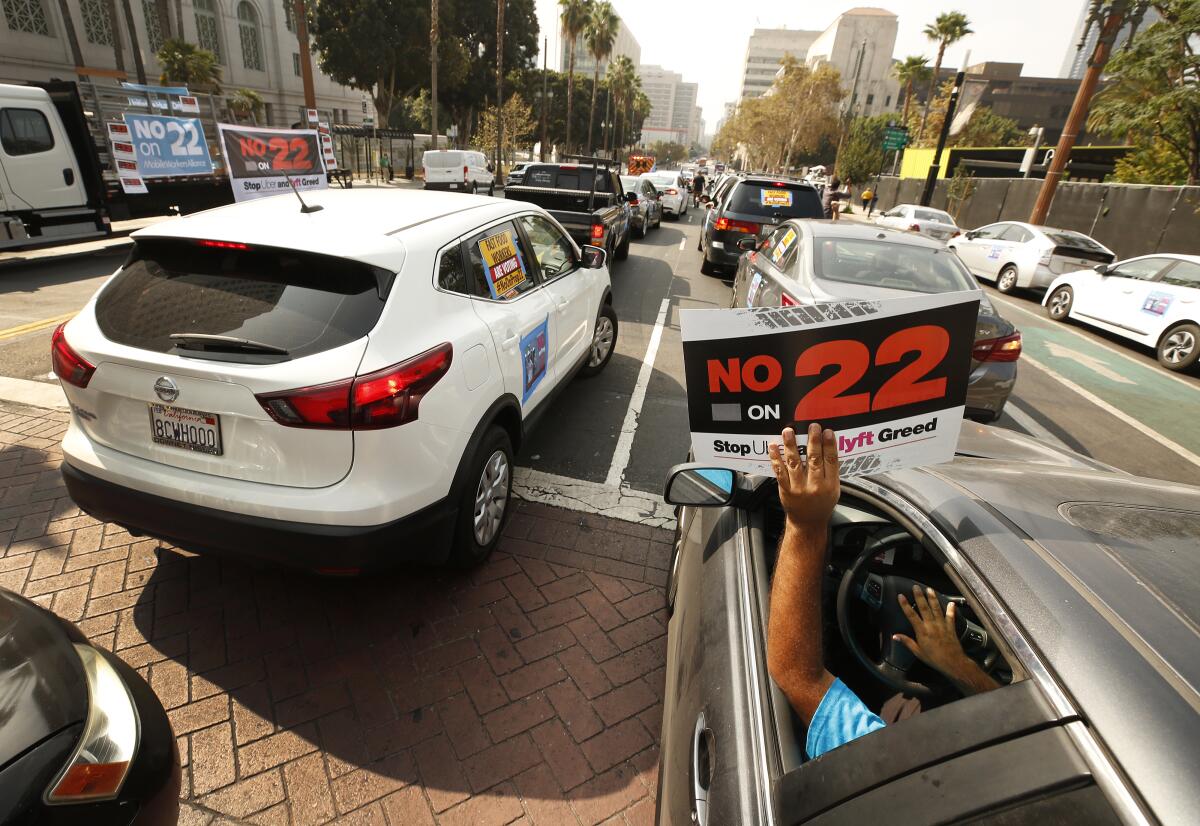Prop. 22 is bad for gig drivers. It may also be unconstitutional

- Share via
Proposition 22 was always a self-serving ballot initiative written and bankrolled by Uber, Lyft and other gig economy companies to override state law and keep their drivers in a second-class employment status.
Nevertheless, the companies convinced enough California voters that drivers should be independent contractors with some bare-bones benefits rather than employees entitled to a minimum wage, overtime pay, workers’ compensation, unemployment insurance and any other state-mandated employment benefits. Proposition 22 passed with 58% support last year and set the stage for similar fights across the country.
Now a state judge’s decision has thrown Proposition 22 into doubt. A Superior Court judge ruled late Friday that the initiative is unconstitutional and unenforceable.
The ruling by Alameda County Superior Court Judge Frank Roesch doesn’t directly address the debate over gig worker classification. His decision says the ballot initiative ran afoul of state law by improperly restricting the Legislature from making app-based drivers eligible for workers’ compensation and allowing drivers to organize to form a union. In essence, the initiative was an overreach.
Proposition 22 remains in effect for the time being. Uber announced it will appeal the ruling. This decision is just the opening round in what will be a long legal fight over an initiative that has national implications.
The lawsuit was brought by the Service Employees International Union and several drivers who were vehement opponents of Proposition 22. They warn the initiative sets a dangerous precedent by allowing companies to reclassify employees as contractors, cut their benefits and take away their ability to organize a union. That’s a real concern. Uber, Lyft and DoorDash are backing a similar ballot initiative in Massachusetts.
The companies have argued that California’s definition of an employee is outdated and too rigid for the work-when-you-want and for-whom-you-want gig economy. That may be true, but the ride-hailing firms have a financial interest, too. Their business models rely on keeping drivers as independent contractors. They spent $220 million last year in the nation’s costliest-ever ballot initiative campaign to pass Proposition 22.
Proposition 22 was never the right answer to the question of how to treat gig workers. It would have been far better if lawmakers had worked to create a new category in state employment law that provides gig workers rights and benefits without sacrificing the flexibility and choice that make these jobs attractive in the first place. While the fate of Proposition 22 is fought out in the courts, the Biden administration and Congress should be working on solutions that ensure gig workers across the country have essential employment protections.
More to Read
A cure for the common opinion
Get thought-provoking perspectives with our weekly newsletter.
You may occasionally receive promotional content from the Los Angeles Times.






